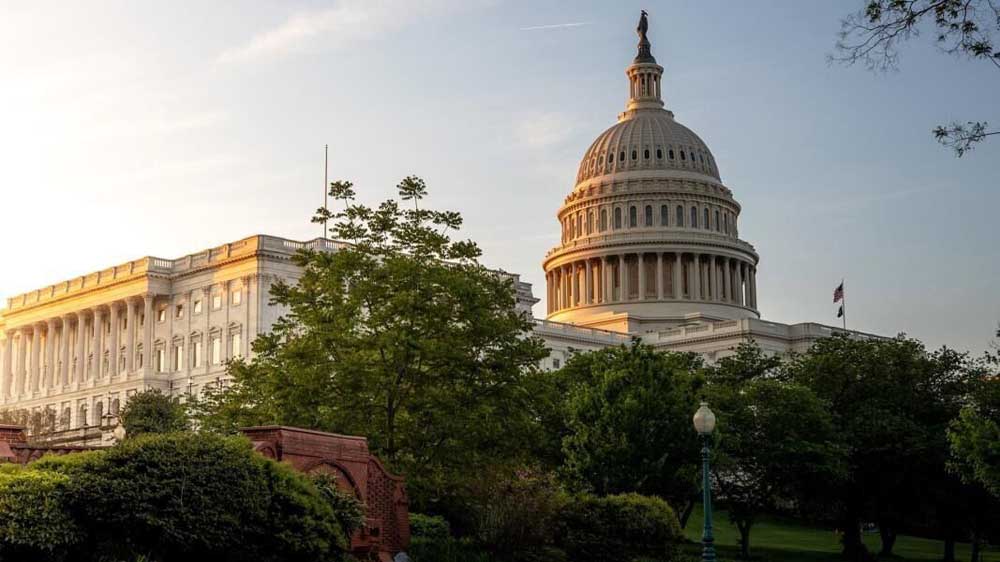Debt vote splits Oregon’s D.C. delegation, and not on party lines
Published 5:00 pm Monday, June 5, 2023

- A photo of the U.S. Capitol on the official congressional website.
Oregon’s delegation to Congress split its vote on the House-passed bill to lift the debt ceiling beyond $32 trillion.
The House on Wednesday, May 31, voted 314-117 for House Resolution 3746, dubbed the “Fiscal Responsibility Act” by House Republican leaders.
Trending
Oregon’s four Democratic House members evenly split their votes — two for and two against. The two Republican House members voted yes.
The Senate passed the bill late Thursday, with a split decision among Oregon’s two veteran Democrats.
The vote came as the national debt climbs toward the $31.4 trillion debt ceiling set by Congress. Under the bill backed by House Speaker Kevin McCarthy, R-Calif., the debt ceiling would be lifted until January 2025, two months after the next presidential election. Borrowing limits would be set by the winners of the 2024 election for president and Congress.
Treasury Secretary Janet Yellen had emphasized that the ceiling had to be lifted by Monday, June 5, which she said was the “X-date” for when federal spending would outstrip available credit. That could have forced the United States to miss debt payments for the first time in its 246-year history.
McCarthy and his House Republican supporters demanded most spending programs be slowed or stopped in upcoming budgets. An exception was made at Republican insistence for military and veterans programs. The Pentagon is to get a 3% budget bump next year — about $388 billion.
Oregon’s delegation
Trending
U.S. Sen. Jeff Merkley voted against the bill. He was one of the first Democrats to say backing the bill was giving in to GOP blackmail to tank the economy if they didn’t get their way. He called out cuts to nutritional funding for poor families, environmental protections and changes in fossil fuel regulation.
“In sum, there is virtually nothing in this bill that matches what the people of Oregon care about, and a whole lot of stuff that will hurt them,” Merkley said in a statement.
Sen. Ron Wyden, the Democrat who chairs the Senate Finance Committee, has said Republicans were playing politics with the nation’s credit reputation. But letting the deadline pass without lifting the cap would destroy Oregonians’ lives, Wyden told OPB in an interview last week. He voted yes.
“Here’s what’s gonna happen if we don’t take care of this,” Wyden said. “Starting at the beginning of June, seniors and veterans, their benefits are at risk. And small businesses. We’re a small business state. And those folks could really face interest rate hikes. And we’ve already seen the Fed express concern.”
The fractures in the usual party positions on legislation before Congress showed up in the earlier House vote.
On the final vote on the Republican-authored bill, 149 Republicans and 165 Democrats voted yes. In opposition were 71 Republicans and 46 Democrats.
Most of the opposition came from Republicans on the party’s far right and Democrats on the party’s far left.
Oregon’s two GOP U.S. House members voted yes.
In their public statements after the vote, Rep. Cliff Bentz, R-Ontario, pointed to it as a win for the GOP, while Rep. Lori Chavez-DeRemer, R-Happy Valley, stressed bipartisan compromise.
“This deal represents a monumental achievement by House Republicans, and it is a much-needed step in the right direction in getting our fiscal house back in order,” Bentz said.
Chavez-DeRemer called it “a bipartisan solution to America’s debt crisis that proves government functions best when both sides come to the table, rise above gridlock, and work to find common ground.”
“The nature of divided government is that not everyone gets everything they want, and that is certainly true about this legislation,” Chavez-DeRemer said.
Four of Oregon’s six U.S. House seats are held by Democrats, who evenly split their votes.
Reps. Earl Blumenauer of Portland and Andrea Salinas of Tigard voted yes. Reps. Suzanne Bonamici of Beaverton and Val Hoyle of Springfield voted no.
The Democrats who voted for the plan said they did so out of a sense of economic urgency — despite disagreeing with concessions to the GOP on social spending and environmental law.
The two Democrats voting no said the bill’s cost in concessions to Republicans was too high.









